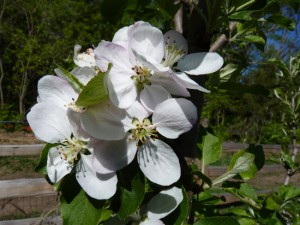Spring Full Bee Hiving Moon
First full outdoor morning. Took off all the hive boxes, cleaned every frame and the hive boxes, prepared hive boxes for the packages due next weekend. The divide from last year’s parent colony had a lot of remaining honey, so I put four frames from it in each of two of the hive boxes for the packages. In the other hive box I used honey from the package colony I had started last year. A sticky job, scraping old propolis and wax off the frames, scraping dead bees off the bottom boards and into the garden (I’m told they make excellent fertilizer.), evaluating remaining frames for use in the upcoming year.
(Artemis Hives patroness goddess)
Now I have three single hive boxes with ten frames, four of honey and six with drawn comb. Both of those mean the packages should be more efficient earlier since they will not spend energy drawing out comb. Each of those hive boxes has its entrance reducer in to full obstruction, or, in one case, it sits flush on the foundation board, which seals it up.
I have to buy one new bottom board and three entrance reducers, other than that, I’m well set up for what will be my third year of bee keeping. I’ve got a long way to go before I’m proficient, but it’s beginning to be less of a mystery.
Mark and I both worked outside. He moved limbs and compost material while I worked on the hive boxes and frames. I only have one hive tool.

 from the airport. Makes the drive much shorter and I get a good meal in the bargain.
from the airport. Makes the drive much shorter and I get a good meal in the bargain.